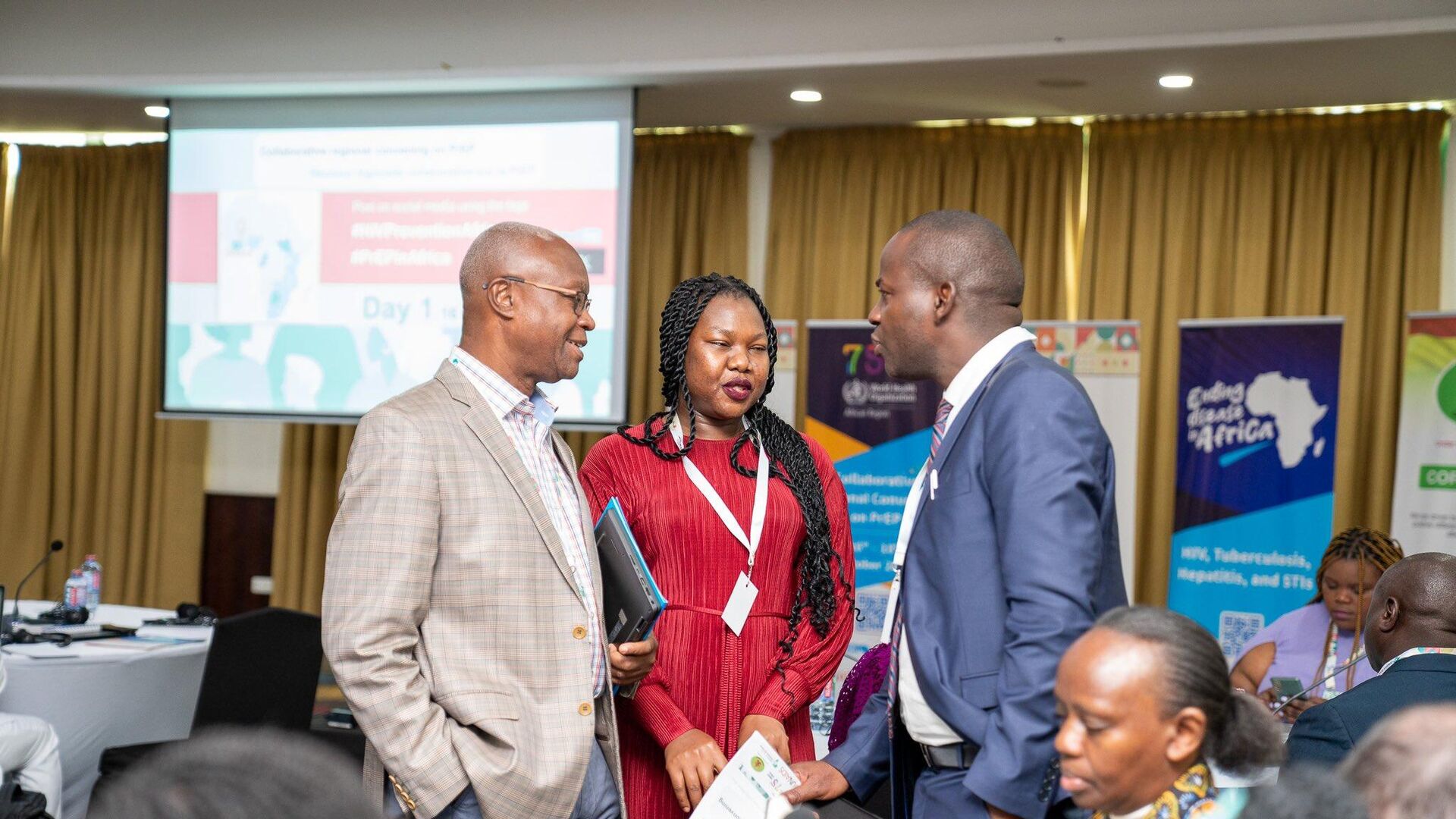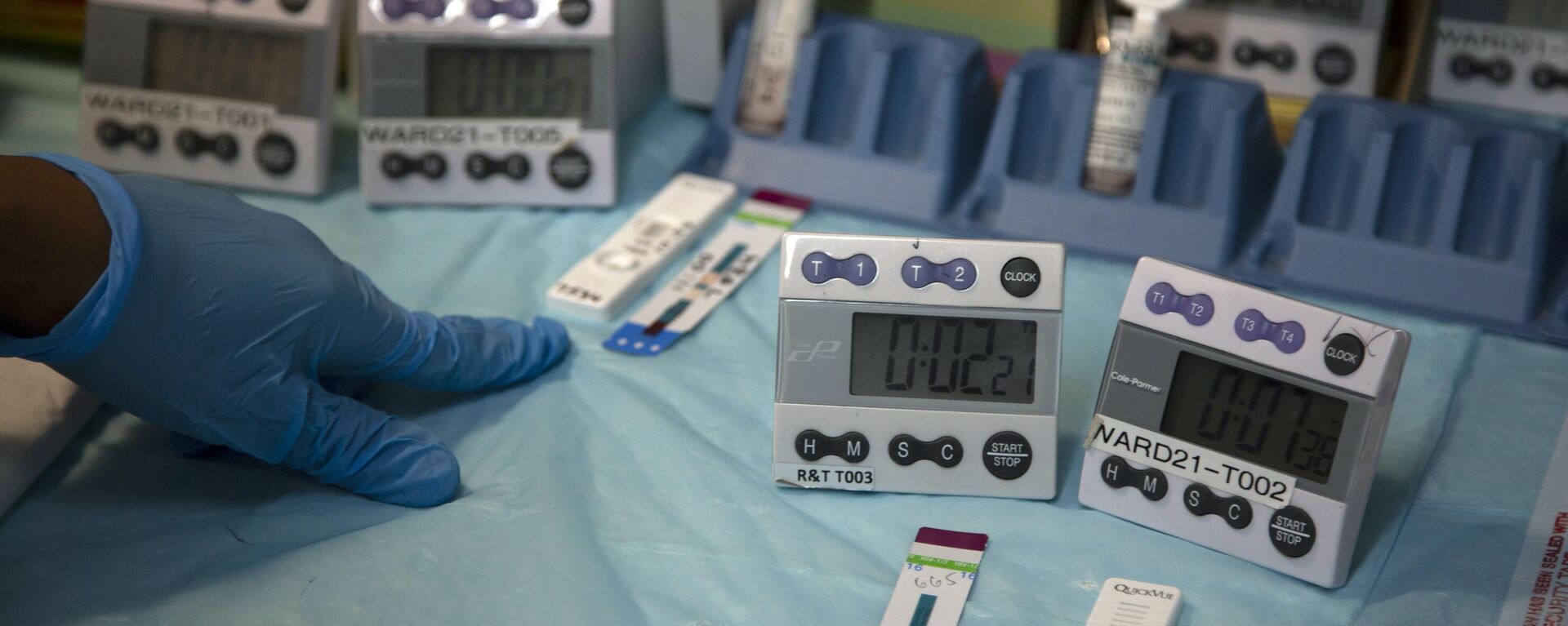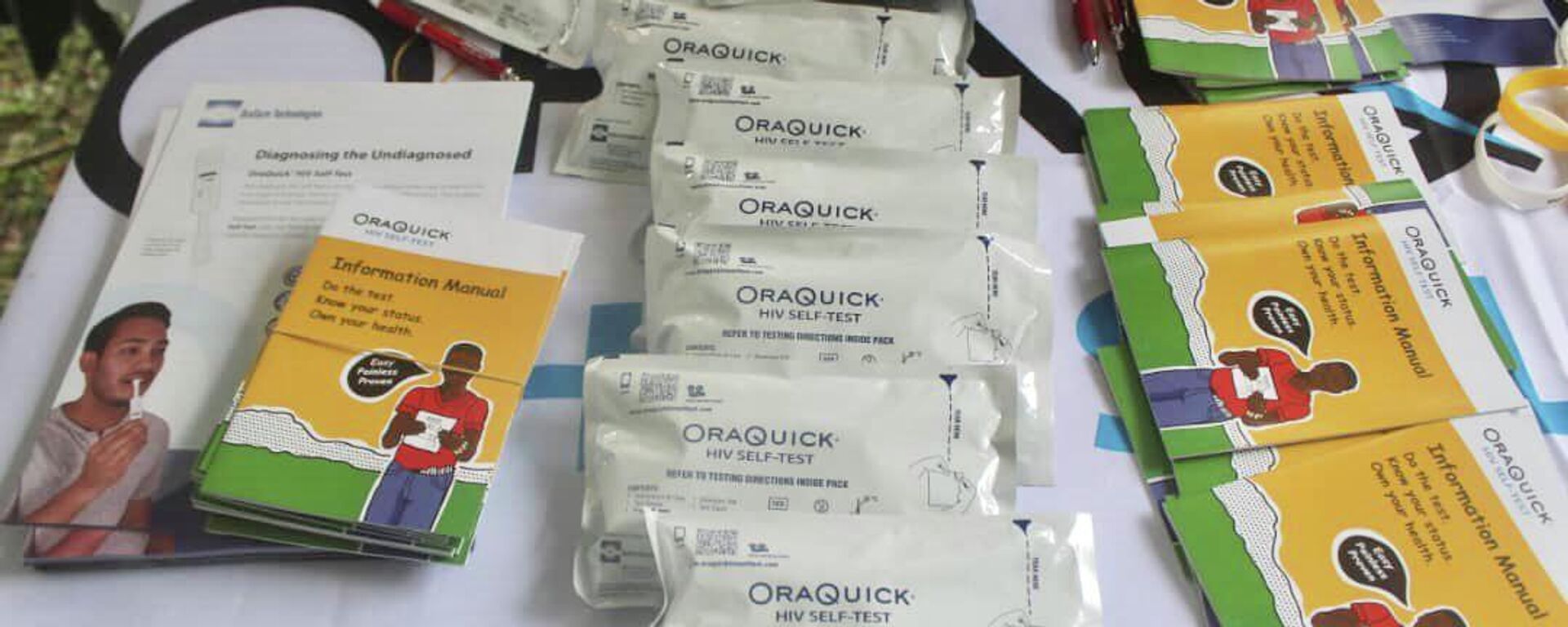https://en.sputniknews.africa/20231017/a-giant-leap-african-countries-collaborate-to-scale-up-hiv-prevention-efforts-1062874963.html
'A Giant Leap:' African Countries Collaborate to Scale Up HIV Prevention Efforts
'A Giant Leap:' African Countries Collaborate to Scale Up HIV Prevention Efforts
Sputnik Africa
Amid growing concern about the HIV epidemic, a major boost in the fight against the virus was evident as the Collaborative Regional Conference on Pre-exposure... 17.10.2023, Sputnik Africa
2023-10-17T17:25+0200
2023-10-17T17:25+0200
2023-10-17T17:25+0200
ghana
southern africa
unaids
west africa
central africa
east africa
hiv/aids
world health organization (who)
health
healthcare
https://cdn1.img.sputniknews.africa/img/07e7/0a/11/1062875265_0:0:2048:1153_1920x0_80_0_0_55c0e6a7eb936a9541c15996ee228b96.jpg
More than 100 health experts from 20 African countries have gathered in the Ghanaian capital, Accra, for a three-day regional conference focused on advancing prevention of HIV transmission.The primary goal of the conference is to accelerate the scale-up of PrEP implementation across the African region, with a particular focus on improving access, uptake and effectiveness as a key HIV prevention strategy. PrEP, a critical tool in the fight against HIV, involves the use of antiretroviral drugs by people who are at increased risk of acquiring the virus despite testing negative.Hector Sucilla Perez, UNAIDS Country Director, recognized the transformative potential of PrEP to empower individuals to protect themselves from HIV infection, particularly those at high risk.Dr. Francis Kasolo Chisaka, Country Representative of the World Health Organization, emphasized the importance of addressing the implementation constraints associated with PrEP, while promoting knowledge sharing and the use of cutting-edge methods to generate demand and efficiently deliver PrEP interventions.The heavy burden of HIV and AIDS in Sub-Saharan Africa remains a pressing concern. According to Dr. Kyeremeh Atuahene, Director General of the Ghana AIDS Commission, the region accounted for 660,000 of the 1.3 million new infections reported worldwide last year.Although there has been a 49 percent decline in new HIV infections in West and Central Africa and a 57 percent decline in East and Southern Africa since 2010, the overall decline in the regions has not been large enough to meet the ambitious continental target for 2025.Access to PrEP remains limited in many African countries due to financial constraints, as Dr. Atuahene highlighted.While domestic funding for HIV and AIDS programs has increased from 50 to 60 percent between 2010 and 2022, it is critical to address the decline in domestic investment in some African countries.
https://en.sputniknews.africa/20230714/end-of-aids-still-possible-by-2030-un-1060522442.html
https://en.sputniknews.africa/20230720/ghana-unveils-nationwide-hiv-self-testing-1060661602.html
ghana
southern africa
west africa
central africa
east africa
Sputnik Africa
feedback@sputniknews.com
+74956456601
MIA „Rossiya Segodnya“
2023
Muhammad Nooh Osman
https://cdn1.img.sputniknews.africa/img/07e7/04/0a/1058467512_0:0:1280:1280_100x100_80_0_0_ec723833bcbfcaed2e21952965ad99e4.jpg
Muhammad Nooh Osman
https://cdn1.img.sputniknews.africa/img/07e7/04/0a/1058467512_0:0:1280:1280_100x100_80_0_0_ec723833bcbfcaed2e21952965ad99e4.jpg
News
en_EN
Sputnik Africa
feedback@sputniknews.com
+74956456601
MIA „Rossiya Segodnya“
Sputnik Africa
feedback@sputniknews.com
+74956456601
MIA „Rossiya Segodnya“
Muhammad Nooh Osman
https://cdn1.img.sputniknews.africa/img/07e7/04/0a/1058467512_0:0:1280:1280_100x100_80_0_0_ec723833bcbfcaed2e21952965ad99e4.jpg
ghana, southern africa, unaids, west africa, central africa, east africa, hiv/aids, world health organization (who), health, healthcare
ghana, southern africa, unaids, west africa, central africa, east africa, hiv/aids, world health organization (who), health, healthcare
'A Giant Leap:' African Countries Collaborate to Scale Up HIV Prevention Efforts
Muhammad Nooh Osman
Writer/Editor
Amid growing concern about the HIV epidemic, a major boost in the fight against the virus was evident as the Collaborative Regional Conference on Pre-exposure Prophylaxis (PrEP) kicked off in Ghana. The geographic presence at the event underscores the shared commitment to fighting HIV and fostering regional cooperation on public health issues.
More than 100 health experts from 20 African countries have gathered in the Ghanaian capital, Accra, for a three-day regional conference focused on advancing
prevention of HIV transmission.
The primary goal of the conference is to accelerate the scale-up of PrEP implementation across the African region, with a particular focus on improving access, uptake and effectiveness as a key HIV prevention strategy. PrEP, a critical tool in the fight against HIV, involves the use of antiretroviral drugs by people who are at increased risk of acquiring the virus despite testing negative.
Hector Sucilla Perez, UNAIDS Country Director, recognized the transformative potential of PrEP to empower individuals to protect themselves from HIV infection, particularly those at high risk.
"By scaling-up PrEP, we're taking a giant leap towards achieving the target of ensuring that 95 percent of people at HIV risk use combination prevention. This action is fundamental to achieve our goal to end AIDS as a public health threat by 2030," Perez said, according to local media.
Dr. Francis Kasolo Chisaka, Country Representative of the World Health Organization, emphasized the importance of addressing the implementation constraints associated with PrEP, while promoting knowledge sharing and the use of cutting-edge methods to generate demand and efficiently deliver PrEP interventions.
The heavy burden of HIV and AIDS in Sub-Saharan Africa remains a pressing concern. According to Dr. Kyeremeh Atuahene, Director General of the Ghana AIDS Commission, the region accounted for 660,000 of the 1.3 million
new infections reported worldwide last year.
Although there has been a 49 percent decline in new HIV infections in West and Central Africa and a 57 percent decline in East and Southern Africa since 2010, the overall decline in the regions has not been large enough to meet the ambitious continental target for 2025.
"Declines in new infections differed markedly between countries and population groups, while the overall declines in both regions [East and Southern Africa] were not significant enough to achieve the 2025 continental target," Dr. Atuahene told the gathering in Accra.
Access to PrEP remains limited in many African countries due to financial constraints, as Dr. Atuahene highlighted.
While domestic funding for HIV and AIDS programs has increased from 50 to 60 percent between 2010 and 2022, it is critical to address the decline in domestic investment in some African countries.
"As international funding continues to shrink, domestic funding for HIV and AIDS must increase to ensure adequate investments in high-impact prevention, treatment and care services, social justice and programmatic enablers," the Ghanaian health expert said.




